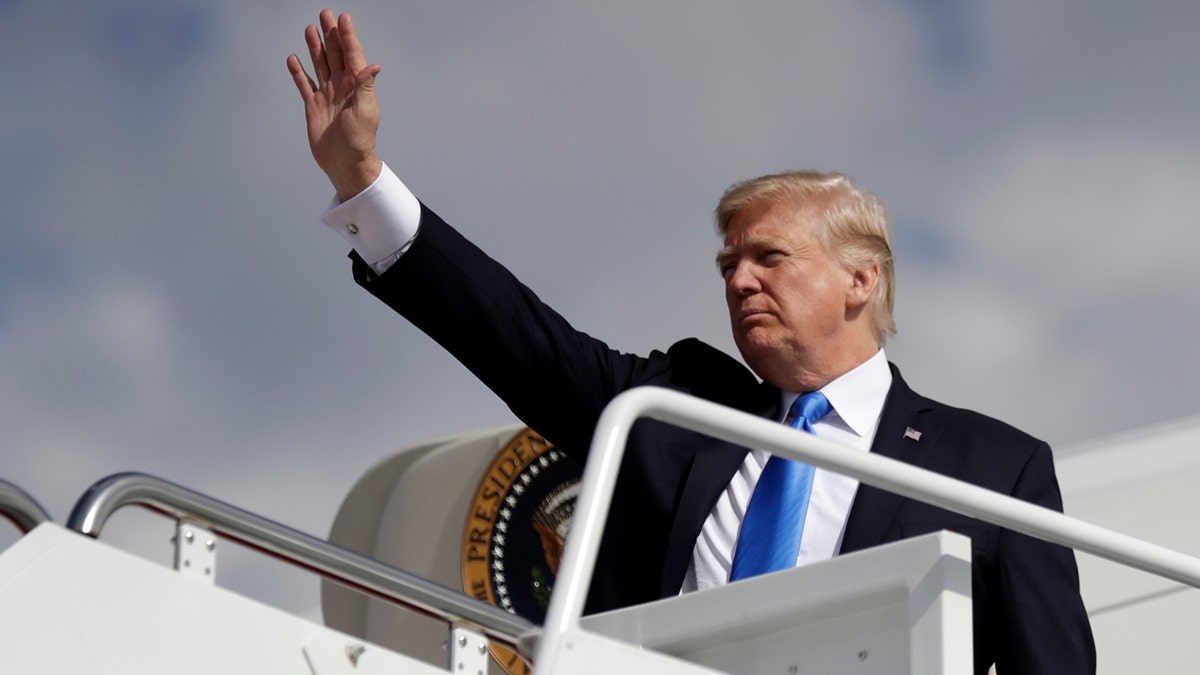
President Trump himself ordered the Justice Department to lift a gag order on a former FBI informant involved in a high-profile Russia bribery case, a source told Fox News. (AP Photo/Evan Vucci)
Watching the world from Rome in Italy, I have been struck by how many things happening across the globe are radically different from our previous expectations and past analyses. In fact, they are so different that none of the patterns and models I have learned in the past can accommodate them.
The more I have thought about the current period of rapid change, uncertainty and reaction our world is living through, the more I am convinced that we are closer to Alvin Toffler’s concept of future shock than any traditional pattern we have commonly understood and accepted.
Human history is an ever-changing ecosystem that is constantly evolving, reacting and adapting with the passage of time. Toffler argues in his book “Future Shock” that the world has an adaptive range – a particular amount of change it is capable of implementing within a certain timeframe.
There are times throughout history when worldly change is collectively methodical and slow – below the adaptive range threshold – leading to a period of boredom and stagnation. When the acceleration of change is above the adaptive range threshold, the world experiences what Toffler calls future shock.
The world is currently overwhelmed with the pace of social, technological, and political change that is occurring, and is ultimately stunned and essentially paralyzed.
The world is currently overwhelmed with the pace of social, technological, and political change that is occurring, and is ultimately stunned and essentially paralyzed. Everything from our established institutions and societal structures, to our foundational American beliefs and values, are being challenged and forced to react to this exponentially rapid rate of global transformation.
Consider the following eight items:
- At one point Thursday, the digital currency Bitcoin was valued at more than $19,000. On Dec. 31, 2016, it was trading at $968. This represents a more than 1,800 percent increase.
- Chinese President Xi Jinping has gained power that rivals Mao Zedong and is initiating a fully totalitarian regime in China (complete with a citizen loyalty scoring system). China may soon pose an existential challenge to the United States, unlike any we have faced.
- The collapse of Puerto Rico stands to completely transform Central Florida.
- Catalonia is seeking to secede from Spain, and two Italian provinces desire more independence from Italy.
- North Korea has developed intercontinental ballistic missile technology that could potentially hit any target in the United States.
- Germany’s open-door refugee policy has led to record attacks on German police by migrants, and there’s little the police can do to contain the situation.
- Personal privacy has been completely redefined by data collection technology through smartphones and web browsing, while the threat of hacking puts all of our information at risk of exploitation by criminals and foreign governments.
- Uber is planning to buy approximately 24,000 driverless cars from Volvo (now owned by Geely Global, a Chinese multinational company). The data collection implications are staggering.
This realization that the entire world may actually be in shock over these rapid changes has helped to clarify a few things for me about American politics and culture – specifically the importance and staying power of the Make America Great Again movement.
Americans have been watching these rapid global changes and they have intuited that their futures will be more secure if America is boldly standing on the global stage with maximum strength. I am convinced this is one of the principle feelings driving the nationalist desire for greater sovereignty that we have seen in America and other Western countries.
The news media have continued to miss this, because capturing the turmoil of America and the world requires a much broader cultural sweep – a wider view of developments – than focusing narrowly on the White House, politics or supposedly relevant distractions.
Président Xi Jining’s rise to power in China is a perfect example. The changes in China could have a significant impact on the world for the next century. Yet the American news media barely spent any time on Xi’s three-hour speech laying out his plan to make China the dominant world power.
What has become clear to me is that Make America Great Again is not a simple campaign slogan – it is an imperative.
America must be great if it is going to break out of the chaotic state of future shock and lead the world through these massive transitions to adopt fundamental and lasting innovative change.








































